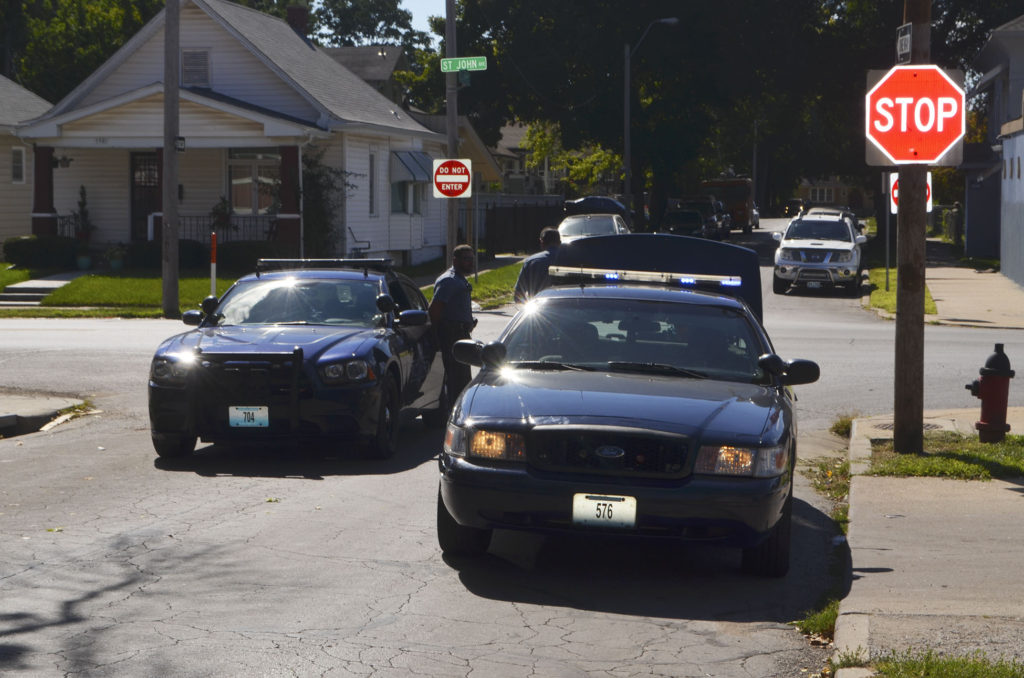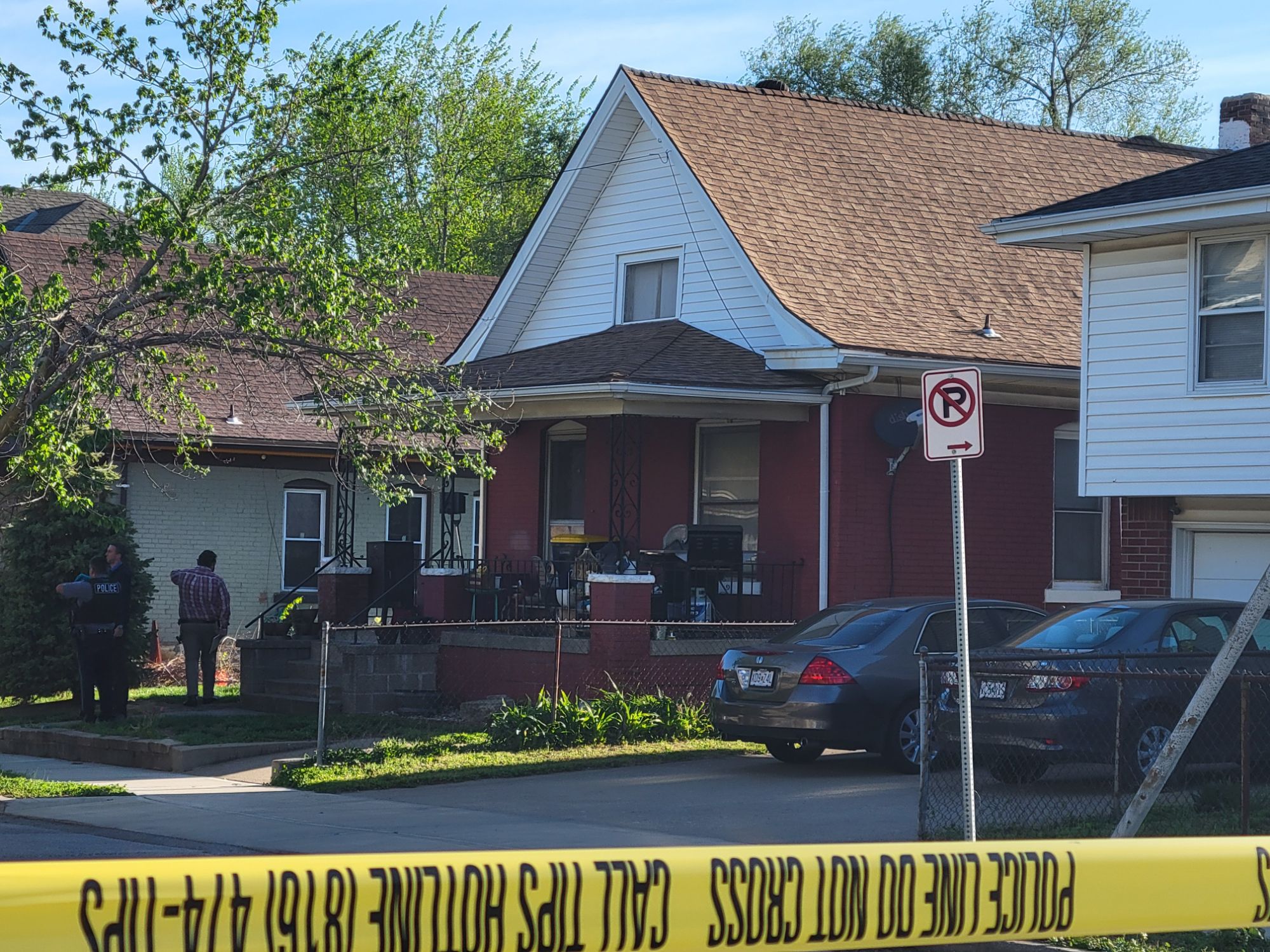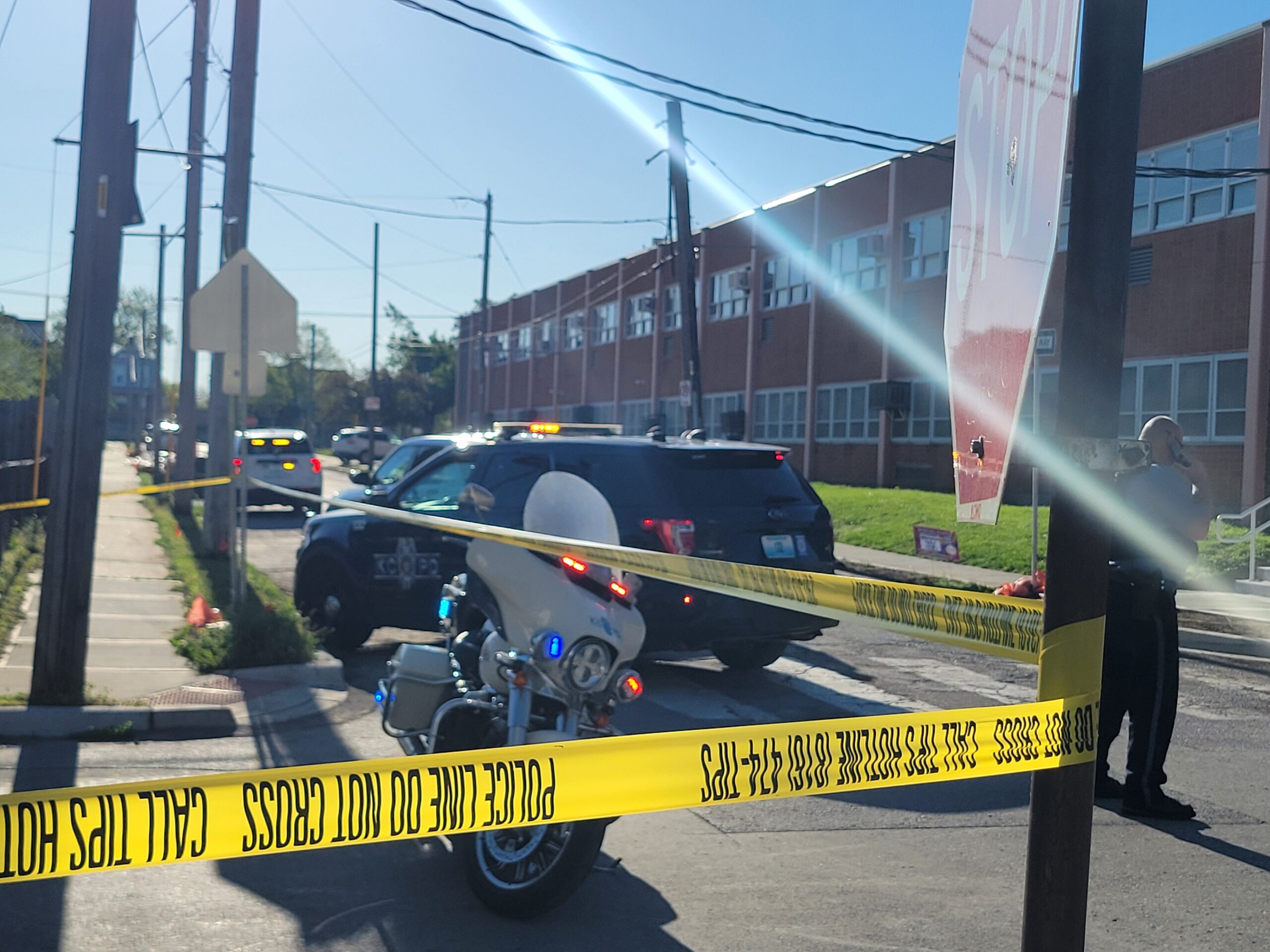Northeast News
October 12, 2016
KANSAS CITY, Missouri – Dangerous criminals in the Northeast have been put on notice by the Kansas City, Missouri Police Department.
Thanks in part to a $700,000 Department of Justice Smart Policing Initiative Grant, KCPD’s East Patrol Division will soon be setting up a micro hotspot in the Historic Northeast, near the troublesome intersection of St. John and Topping Avenue. The micro hotspots focus on compact, two or three-block portions of the city at a time.
Major Joe McHale, the Commander of East Patrol, initially announced the grant during a September 26 press conference.
“It’s our intention to utilize this federal money to augment current resources that we have at the East Patrol Division to look at very small, concentrated areas of violence in our community, and to develop strategies to do interventions and strategic social service offerings to those individuals that are at risk for being a victim or committing a violent crime in our community,” said McHale.
By the evening of Tuesday, October 11, East Patrol had decided to make the area surrounding St. John and Topping it’s first micro hotspot. That night, Major McHale met with Northeast leaders at the Mattie Rhodes Center to discuss further details about how the department will implement the planned micro hotspot.
“I’m trying to make a concentrated effort in the area around Mattie Rhodes to support neighborhood growth and to help the neighborhood build collective efficacy through an organization that cares about the community,” said McHale. “We have some serious quality of life issues occurring in the neighborhood, we have a significant violent crime problem, narcotics, it’s all here. How do we begin to drill down to the very, very small percentage of people that are causing problems in the neighborhood? It’s through intelligence.”
McHale noted that the department will be utilizing social network analysis in order to pinpoint the interactions of the area’s most violent criminals – and he’s not talking about poring over Instagram feeds. Instead, he says that the software is closer to what the Center for Disease Control (CDC) uses to track the spread of communicable diseases.
“It’s the same thing with violent crime,” said McHale. “Violent crime is considered a health issue, and it does spread like a disease.”
To illustrate the network of violent crime perpetrators in the area, McHale displayed a slide filled with dozens of dots, which represented violent criminals. When there’s a recorded social connection between individuals, a line is drawn which connects their two dots. By the time the dots are all connected throughout the Northeast, the slide ended up looking like a condensed maze of criminal activity.
In a three-block radius around the Mattie Rhodes Center, there are roughly 60 people who are part of the social network analysis. Roughly two-thirds of the network members have current warrants, and a handful of those are felonies. Six of those individuals are on the KC No Violence Alliance (NoVA) list of gang members, and five are currently on probation or parole. McHale added that the intent is to arrest and jail only the most dangerous and destructive offenders.
“The top targets are pulled off the street and put in prison,” said McHale. “The ancillary individuals are offered social services.”
As part of the focused Northeast efforts, McHale has assigned six rotating officers to the micro hotspot beginning next week, in order to conduct proactive policing for a period of roughly three to four weeks.
“We’re going to get every single person that has a warrant, and we’re going to talk to them about why we’re coming to their door,” said McHale. “I want to know where these people really live who are doing this crime in the area.”
The Smart Policing Initiative Grant will also allow the department hire a social worker who specializes in interventions. The social worker, who McHale hopes can eventually be headquartered at the Mattie Rhodes Center, will be expected to identify at-risk individuals in hotspots and offering them vital social services.



















